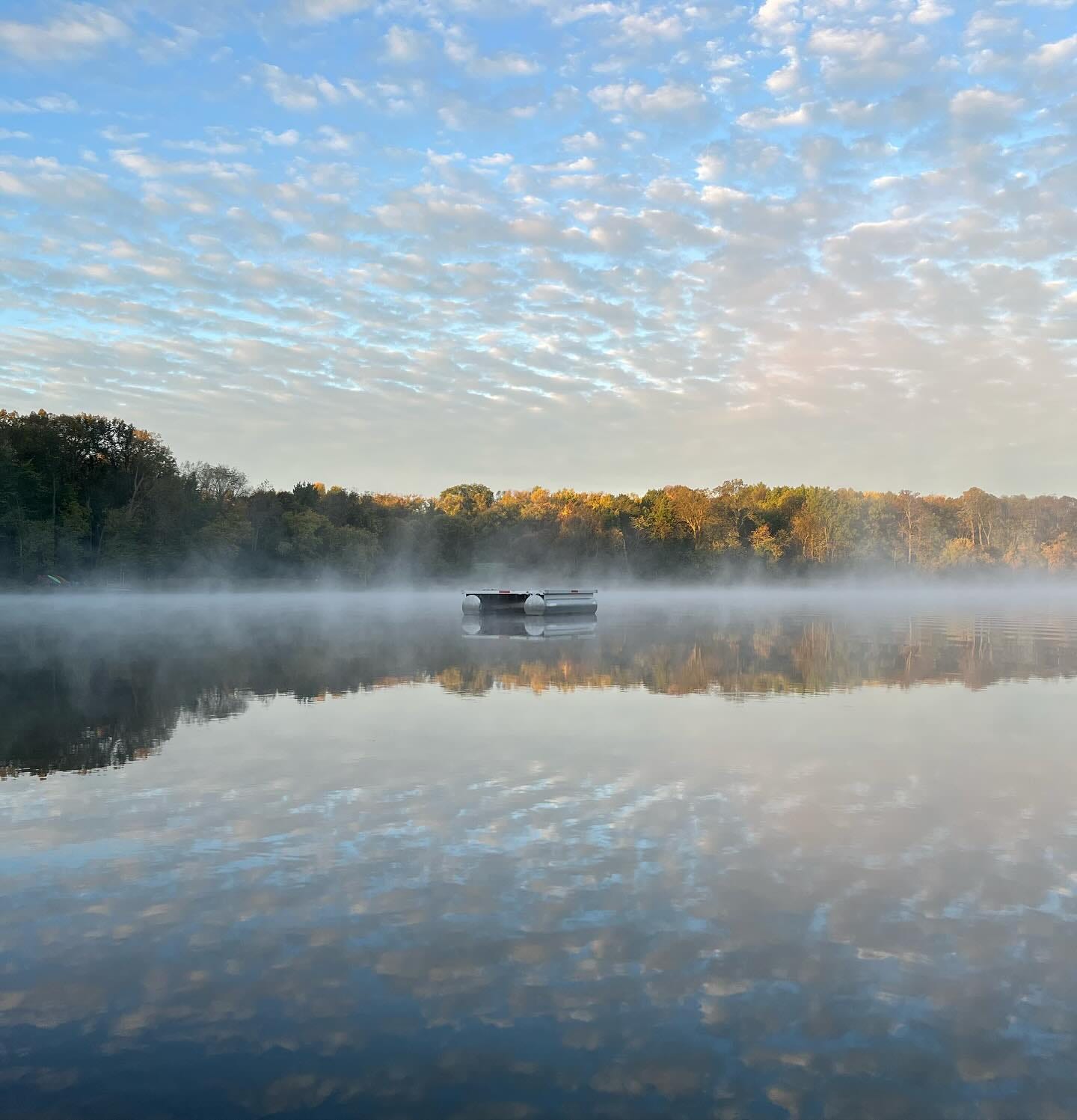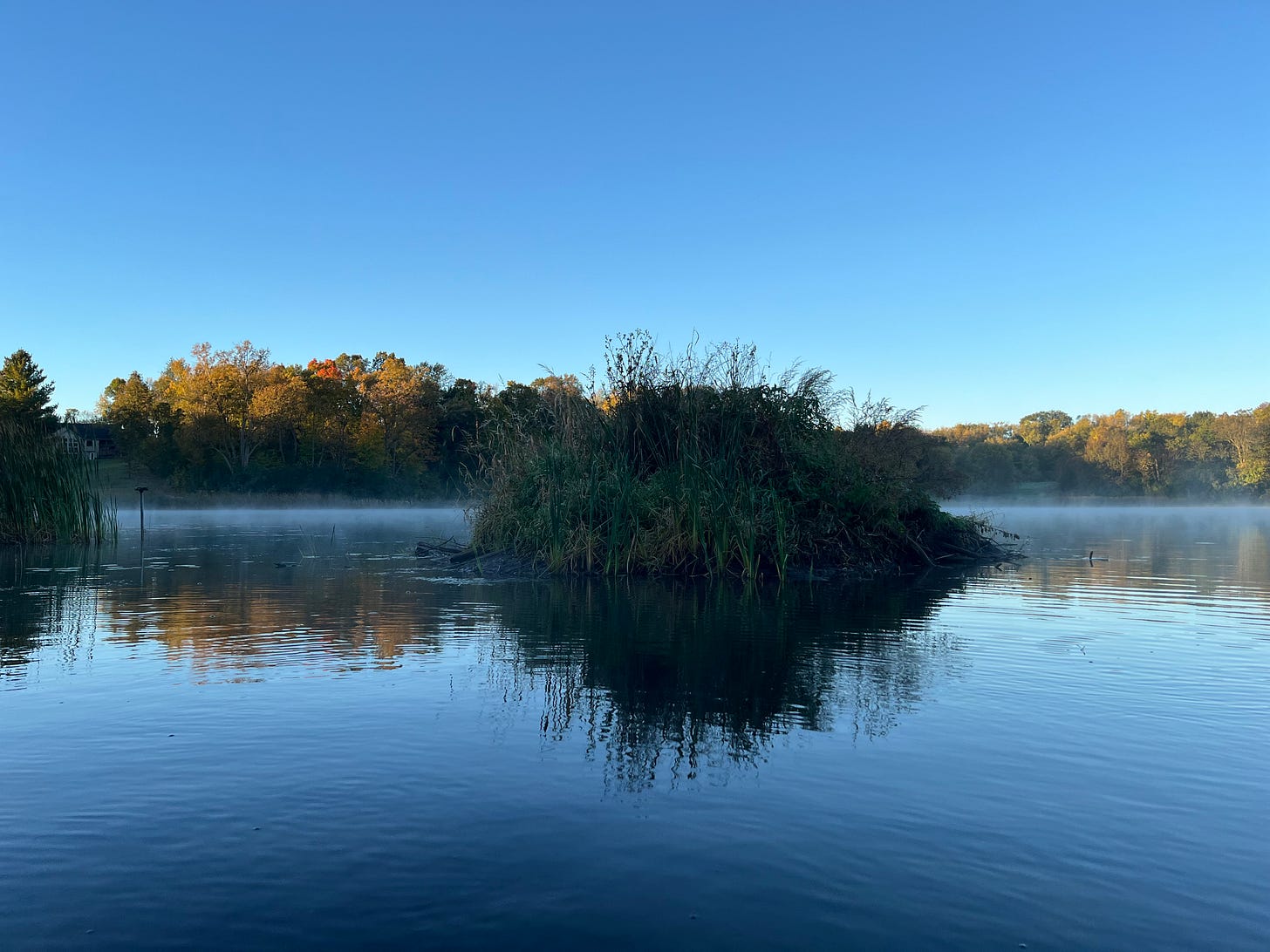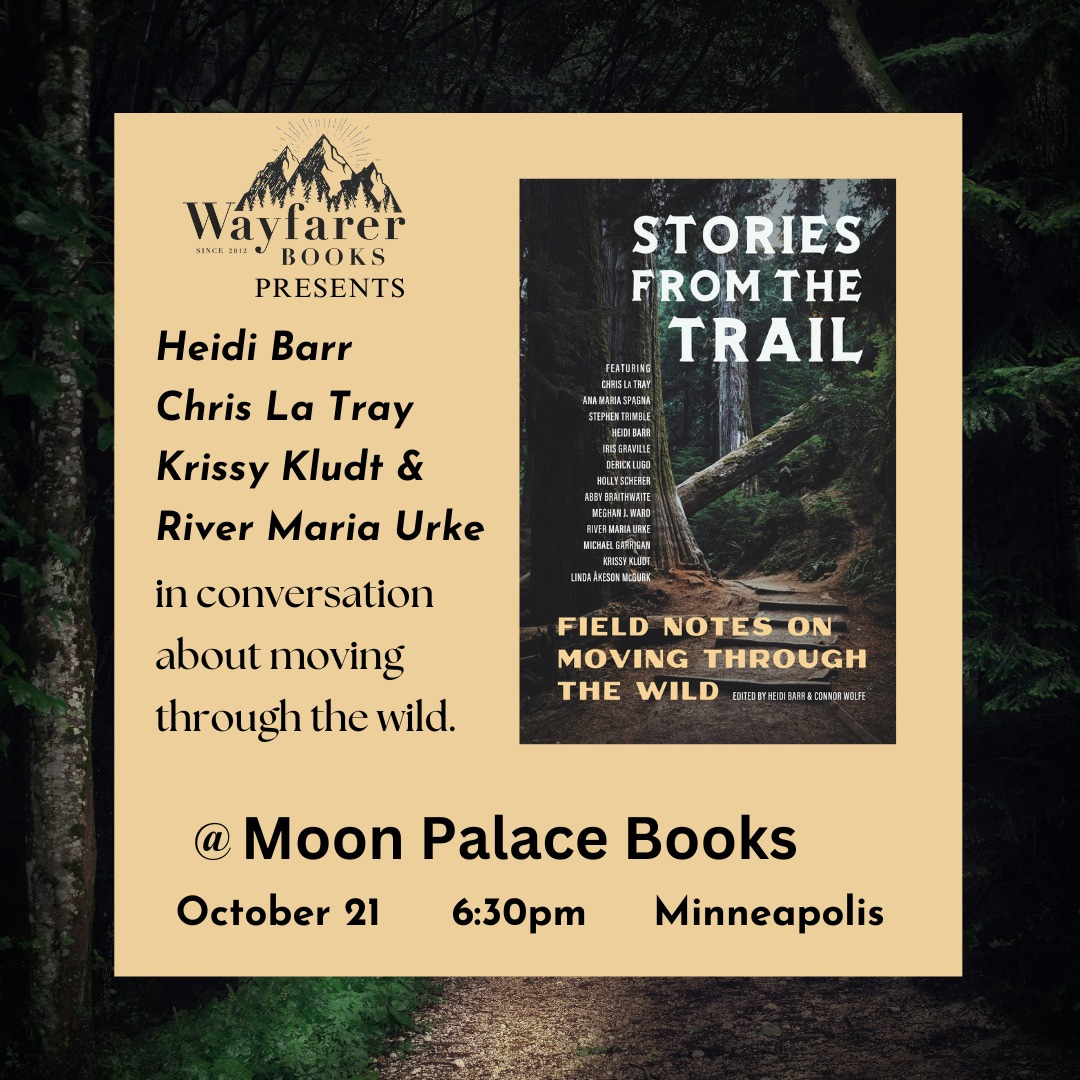It’s been a gorgeous autumn here in Minnesota so far—warm days, chilly nights, but no hard freeze yet1. The trees are taking on their fall color jackets, and the backyard is starting to glow with the season. The water in the lake is warm enough to create morning mists rising from the surface, like a giant witchy cauldron steaming. It is a bit like magic, really, the way the view out back shifts so drastically with a few weeks. I’ve taken to paddling the kayak as dawn breaks—it’s pretty cold before the sun rises, but there’s something mystical about gliding through the wisps as they rise like steam from the glassy surface.

So, even though the days still feel kind of summery, the nights and foliage tell the story of autumn as we move further toward fall. This time of year feels liminal, a way of being which is not for the faint of heart, but it can also be full of the beauty of contrast. Of course, contrast can also be really destructive: the southeastern United States is walking a path no one wants to as they deal with the aftermath of way too much rain at one time, and Palestine and Lebanon and so many communities across the world are dealing with ongoing war and displacement and pain and grief. It’s an election year in an era of exceptionally polarized politics. Loved ones get sick, accidents happen, the furnace goes out. You get the job, or you don’t. The beauty of the season is present, but so is a lot of other [harder] stuff right alongside it.
We could call this, “Naming the ache makes friends with celebrating the season.”
And that ache, well, it usually doesn’t just dissolve when named.2 It perches right there on your back, or sits in the corner of your stomach, or digs in between your shoulder blades, insistent on being known. The ache doesn’t often morph into a poetic sermon or heartfelt lesson, either. No, the ache is just there, and it’s your job (mine, too) to allow it the space it needs—the space that could, one day, turn into a quiet room of acceptance that you can go into whenever the ache feels like too much.
Write What You Wish You Didn’t Know
(along with what you do, there’s room for both)
I want to say I quit my job
to become a poet
but that’s not what happened.
Instead life got turned upside down
by a layoff – a quitting of work, yes,
but not on the timeline of my choosing.
I want to say the need for money
vanished along with the regular paycheck
but that’s not what happened either.
Instead the need for work continued,
demanding time and energy and applications
asking for a role that would demand time and energy,
energy I’d rather spend noticing glimmers
of light frolicking across a frosty morning.
So, I want to say I quit my job
to become a poet
but that’s not what happened.
Instead what happened was words
found me anyway, arranging themselves
like they belonged together on the page
a flow of image and ideas that rose up, and rise up still,
not due to devoting life to the craft
but rather by allowing the craft to mold life,
moment by moment, attention my devotion
naming the ache,
but also celebrating the season
amidst the to-dos and the missing pieces,
around the need to work and maybe even because of it–
After all, reality is where poems take root, meandering through
ordinary mystical things, and poets, well,
(no matter our employment status)
we notice, and tell about it.
EVENT NEWS
Join us at Moon Palace Books in a few weeks!
Granted this is somewhat odd, if not par for the course these past few years. September 15 is when ‘they’ say to be ready for a hard freeze in Minnesota, but that hasn’t happened much the last several years.
Sure would be nice if it did though.






I relate so deeply to the relationship between the need for employment, money, and words. Thank you!!
Oh gosh! ❤️ This, these words, your words! Please all day long!
Instead what happened was words
found me anyway, arranging themselves
like they belonged together on the page